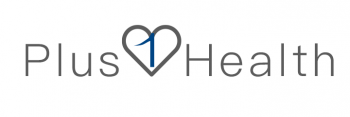When discharged from the hospital, many cardiac surgery patients will be discharged with medication. Doctors will tell some patients that they should pay attention to monitoring blood pressure and heart rate at home. Among them, many patients do not understand, and some patients find it troublesome and do not cooperate. Why monitor blood pressure and heart rate after discharge?
First of all, many patients after heart surgery have not fully recovered heart function and will need long-term medication after discharge. For example, in many valve disease operations, the heart is significantly enlarged before the operation, and the heart function is poor. In addition to the surgical blow, the postoperative heart function is still at a relatively low level. Doctors use a variety of drugs, including cardiotonic, diuretic, and drugs that inhibit myocardial remodeling. Some of these drugs, such as enalapril and irbesartan, are blood pressure lowering drugs that lower blood pressure. Because the initial dose is too small, the antihypertensive effect of most patients is not obvious. However, some patients will be more sensitive and their blood pressure will drop a lot. Seriously, it will affect the blood supply of important organs such as the brain and kidneys. Some patients experience dizziness, severe renal hypoperfusion, and even renal impairment.
Some patients will use digoxin, metoprolol, amiodarone and other drugs after discharge. These drugs lower the heart rate. Generally less than 70 beats/min, use it with caution to prevent bradycardia. If you don’t monitor your heart rate and keep eating and eating, it will cause bradycardia; if it continues, it will lead to serious consequences. There was once a patient who recovered well after cardiac surgery. After the operation, the family members had been taking digoxin without monitoring, which resulted in serious consequences of third-degree atrioventricular block.
In addition, many drugs are started in small doses in the treatment regimen. However, it needs to be gradually increased and adjusted to the maximum tolerated dose to have the best therapeutic effect. If there is no blood pressure and heart rate monitoring data, doctors cannot make adjustments on time, which will significantly affect the therapeutic effect of the drug. Some patients will ask, is it okay to measure blood pressure and heart rate once when they go to the outpatient clinic for reexamination? The answer is: no. Because in the outpatient clinic, a blood pressure measurement is impossible to represent the blood pressure level during the medication period. Moreover, the occasional measurement in the outpatient clinic is often too high and has little value.
Therefore, it is best for patients to follow the doctor’s orders, measure their blood pressure and heart rate at home, record them in time, and give feedback to the doctor in time, which can help the doctor adjust the drug treatment plan and achieve the best therapeutic effect.
Plus1Health has a sleep recorder, which can continuously monitor for a long time, monitor heart rate and breathing rate, and automatically generate sleep reports and analysis.
There is also a free heart rate app “Heart Rate“:
Heart Rate Monitor-Plus1Health on the App Store (apple.com).
